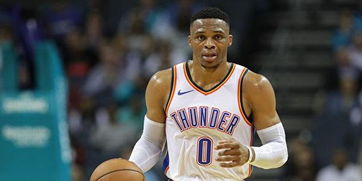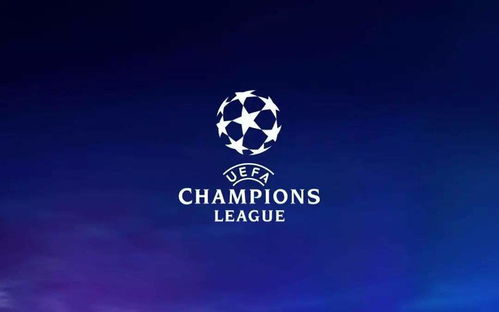TheArtofPlayingBeautifulFootball:ADeepDiveintotheEuropeanChampionship'sFinest
Introduction
The European Championship, often referred to as the Euros, is a quadrennial football competition contested by the men's national teams of the member associations of UEFA, the sport's governing body in Europe. The tournament is one of the most prestigious and highly anticipated events in the world of football, showcasing the best talents and strategies from the continent. In this article, we will explore the various aspects that contribute to playing beautiful football at the Euros, analyzing the tactics, players, and moments that have defined the tournament's rich history.
The Tactical Evolution of European Football
Over the years, the Euros have witnessed a remarkable evolution in football tactics, with teams constantly adapting and innovating to gain an edge over their opponents. From the catenaccio of the 1960s to the tikitaka of the 2010s, European football has been at the forefront of tactical development.
One of the most influential tactical systems in the history of the Euros is the Dutch Total Football, which was showcased in the 1974 and 1978 tournaments. This system allowed players to fluidly interchange positions, creating a dynamic and unpredictable style of play. The Dutch team, led by the legendary Johan Cruyff, mesmerized audiences with their attacking prowess and technical brilliance.
In the 1980s, the Italian team popularized the concept of "Catenaccio," a defensiveminded system that focused on nullifying the opposition's attack and relying on counterattacks to score goals. This pragmatic approach led Italy to victory in the 1982 tournament, with the team conceding only six goals throughout the competition.
The turn of the century saw the rise of tikitaka, a possessionbased style of play that emphasized short passing and movement. Spain, under the guidance of manager Vicente del Bosque, implemented this system to great effect, winning backtoback Euros in 2008 and 2012. The Spanish team, featuring players like Xavi, Iniesta, and Xabi Alonso, mesmerized fans with their intricate passing patterns and ability to control the tempo of the game.
The Role of Individual Brilliance
While tactics and team cohesion are crucial to success in the Euros, individual brilliance often plays a significant role in shaping the tournament's narrative. Over the years, numerous players have risen to prominence with their exceptional performances on the grand stage.
Michel Platini, the French maestro, is arguably the most outstanding individual performer in the history of the Euros. In the 1984 tournament, Platini scored an incredible nine goals in just five games, leading France to their firstever major international trophy. His vision, technique, and goalscoring prowess remain unparalleled in the annals of the competition.
Another player who left an indelible mark on the Euros is the Portuguese forward, Cristiano Ronaldo. With his incredible goalscoring record and ability to perform under pressure, Ronaldo has become the tournament's alltime leading scorer, with 14 goals to his name. His leadership and determination were instrumental in Portugal's triumph in the 2016 edition, where they emerged victorious despite not winning a single game in the group stage.
Iconic Moments and Matches
The Euros have provided countless unforgettable moments and matches that have become etched in the collective memory of football fans. From dramatic lastminute goals to epic encounters between titans of the sport, the tournament has consistently delivered on its promise of excitement and entertainment.
One of the most iconic moments in the history of the Euros is the "Panenka" penalty, taken by Antonin Panenka in the 1976 final. With the score tied at 22, Panenka stepped up to take the decisive penalty in the shootout against West Germany. Instead of striking the ball with power, he delicately chipped it down the middle, sending the goalkeeper the wrong way and securing the title for Czechoslovakia. This audacious piece of skill has since been replicated by numerous players and has become synonymous with the Euros.
Another unforgettable match in the tournament's history is the 1996 semifinal between England and Germany. With the score tied at 11 after extra time, the match went to a penalty shootout. In a nervewracking finale, both teams converted their first five penalties, leading to sudden death. The decisive moment came when Gareth Southgate, England's fifth penalty taker, saw his effort saved by the German goalkeeper. Andreas Möller then stepped up to score the winning penalty, sending Germany to the final and breaking English hearts.

Conclusion
The European Championship is a celebration of the beautiful game, showcasing the tactical ingenuity, individual brilliance, and unforgettable moments that define football at its highest level. As the tournament continues to evolve, it remains a testament to the passion, skill, and dedication of the players and teams that grace its stage. The Euros not only provide a platform for the continent's finest to compete for glory but also serve as a showcase for the everevolving art of playing beautiful football.
体育资讯
MORE>-
09-26意甲米兰德比揭示问题,迪马尔科破僵局,加比亚绝杀更加关键
-
09-262018年NBA季后赛,传奇对决,历史瞬间与未来启示录
-
09-26苏醒,音乐路上的孤独探索者
-
09-26恒大曾想归化大外援若有神塔特谢拉格德斯国足能进世界杯?
-
09-26回溯经典,2013年NBA全明星赛的璀璨星光与历史瞬间
-
09-26NBA总决赛第五场激战,逆转史诗,冠军争夺的最后狂澜!
-
09-26现场,刘德华带刘涛张子枫已读乱回
-
09-26一路繁花,张兰与向太的璀璨人生
-
09-26维拉名宿:大马丁是世界前三的门将,感谢阿森纳让他离开
-
09-26火拼西决!NBA2023年度巅峰对决,巨头争霸,新势力崛起的无尽悬念
-
09-26女子闪了腰仍坚持做家务险致瘫痪
-
09-26印度男子欲性侵女童时遭群猴攻击,自然与正义的交响曲
-
09-26🔥🔥火线来袭!NBA休斯顿火箭队2022/23赛季赛程大揭秘,不容错过!
-
09-26深度解析从诺天王到超级新星,独行侠队的NBA复兴之路——小牛篇
-
09-26学生忘戴红领巾被校长掐脖,教育之殇与法治之问
- 搜索
- 最近发表
-
- 学生疑跳楼老师报警遭阻拦 官方通报
- 九天揽月二十载 六战六捷
- 回顾与荣耀,2012年伦敦奥运足球盛宴——激情与梦想的碰撞
- 男子求复婚遭拒捅死前妻 被执行死刑
- 贾森·威廉姆斯,篮球巨星的坚韧与创新之路
- 意甲米兰德比揭示问题,迪马尔科破僵局,加比亚绝杀更加关键
- 医院回应女子穿着暴露在院内跳舞,维护公共秩序与尊重的探讨
- 揭秘TVB黄金时代的荣耀与变迁,香港电视剧的璀璨明珠
- 3人冒充警察抓嫖敲诈失足女,法律不容许的罪恶行径
- 2018年NBA季后赛,传奇对决,历史瞬间与未来启示录
- 揭秘NBA历史得分王,传奇与荣耀的永恒较量
- 苏醒,音乐路上的孤独探索者
- 揭秘欧洲足球的荣耀殿堂,历届世界杯冠军球队的传奇之路
- 国球荣光,激战半决赛——揭秘男子乒乓赛的巅峰对决
- 布兰登·拉什,传奇射手的不朽篇章——穿越时空的足球巨星访谈
- 激战正酣!混双决赛倒计时,冠军争夺一触即发!
- 揭秘,从赛车王子到科技革新者——贾斯汀·汉密尔顿的传奇人生
- 恒大曾想归化大外援若有神塔特谢拉格德斯国足能进世界杯?
- 今年合肥共发生三级以上地震5次,城市防震减灾的挑战与对策
- 欧洲足球盛宴,意大利VS斯洛伐克,战术对决与历史交锋的深度解析
- 标签列表
-
- 欧洲杯为什么没有直播 (12)
- 2024年欧洲杯预选赛 (23)
- 2024欧洲杯主办城市 (18)
- 2024欧洲杯参赛队伍有多少个 (9)
- 欧洲杯有多少只球队参加 (12)
- 2024欧洲杯百度百科 (17)
- 欧洲杯共多少场比赛 (11)
- 欧洲杯怎么看回放 (12)
- 欧洲杯2024在哪个国家 (11)
- 在哪里可以看欧洲杯预选赛 (14)
- 欧洲杯在哪里看直播 (10)
- 欧洲杯在哪竞猜 (10)
- 欧洲杯在哪竞彩 (12)
- 欧洲杯在哪个国家举行2024 (10)
- 欧洲杯每场比赛场地 (15)
- 2024欧洲杯比赛时间 (15)
- 2024欧洲杯预选赛 (12)
- 欧洲杯多少支球队参加 (11)
- 欧洲杯一共多少场 (12)
- 欧洲杯一场多少人 (12)
- 直播app (12)
- 直播网站 (15)
- 直播软件 (13)
- 直播 (10)
- 直播吧 (22)




